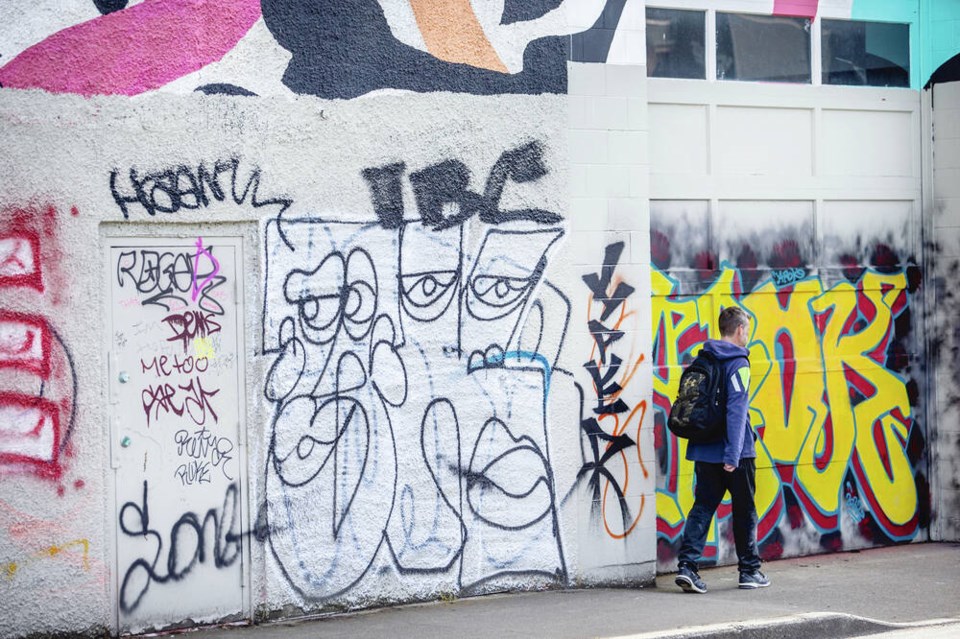Fewer than 40 per cent of people who responded to a recent survey from the Victoria Police Department reported feeling safe at night in downtown Victoria or Esquimalt.
The VicPD Community Survey, which the municipal police force started in 2014 and has been conducting annually since 2020, saw 5,000 surveys mailed to a random sample of addresses in Victoria and Esquimalt between Feb. 15 and March 31.
The police said 1,300 surveys were completed — a 26 per cent response rate — and the results were analyzed in April and May.
Respondents listed homelessness (18 per cent) and mental health (16 per cent) as top problems VicPD should pay closer attention to.
But Victoria police spokesman Bowen Osoko said neither homelessness nor mental health problems are criminal matters. “That talks to the need for more services and support for people experiencing homelessness [and] more services and support for people with mental health [issues].”
The report said that 52 per cent of respondents to the survey felt crime had increased. That number was down from 55 per cent in 2021, but still a leap from the 34 per cent who felt crime was rising in 2020.
Yet only 26 per cent of participants responded “yes” to a survey question asking if they been a victim of crime over the last five years.
Osoko noted that the survey is about perception of crime as opposed to actual crime.
When it came to perception of police, Osoko said there are some areas that need work.
While 82 per cent of respondents reported overall satisfaction with the police department, only 45 per cent of participants agreed the police force is accountable, down from 56 per cent in 2020.
“We’re hoping that will spark a discussion about ‘what does police accountability look like and what are people’s expectations,’ ” Osoko said. “We owe that sense of accountability to the citizens we serve.”
Some participants were on the fence when it came to VicPD’s use of authority and force. Sixty per cent agreed the police department used its power appropriately, while 31 per cent were undecided and eight per cent disagreed altogether.
Twenty-one per cent of survey respondents said Victoria and Esquimalt needed a more visible police presence, while 18 per cent said more officers needed to be hired.
But City of Victoria Coun. Sarah Potts said hiring more officers shouldn’t be the focus.
Potts, with support from the Committee Wellness Task Force, pushed for council approval for a police-alternate emergency response team in Victoria, which is now being developed by the B.C. division of the Canadian Mental Health Association.
Modeled on previous versions in North Vancouver and Oregon, the new model would deploy teams of trained mental health workers for emergency response to crisis events with low risk of harm or violence.
Potts said the model is badly needed in Victoria.
“There hasn’t been any significant changes in the way that we address homelessness, mental health and substance use over several decades,” she said. “It’s only been the same response and according to the community, it’s getting worse.
“If we keep thinking it’s just about hiring new officers, I think we’re missing the point,” Potts said. “We need a different way to approach these problems because they’re not getting any better.”



